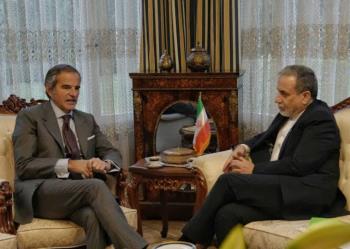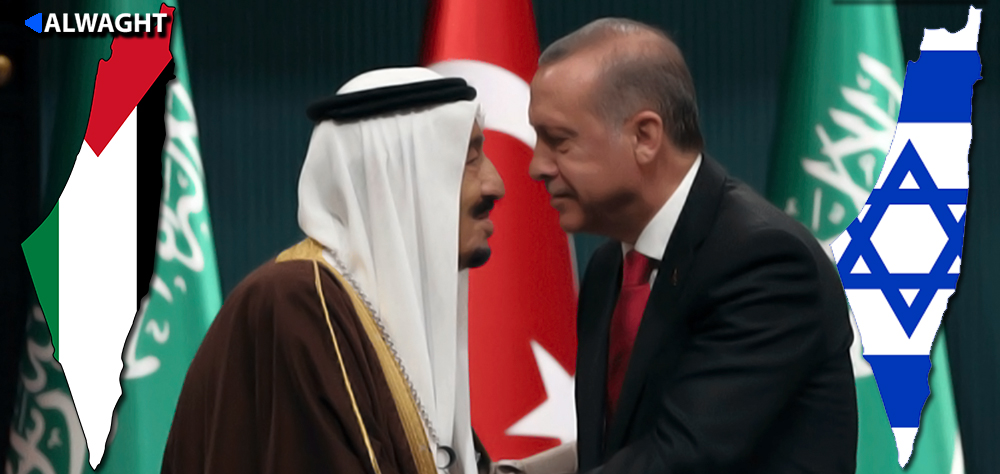Alwaght- Dragging political and ideological confrontation between the Muslim Brotherhood and the Saudi-Emirati camp to the region's geopolitical competitions in the last decade marks one of explaining features of the transitioning West Asian region's order.
Meanwhile, although clouds of hostility seem to have disappeared after the early January reconciliation of the (Persian) Gulf Cooperation Council members and also a relaxation of tensions between Saudi Arabia and Turkey following the Saudi-hosted G20 summit, a probe of the Saudi and Emirati approach to the Muslim Brotherhood makes it clear that enmity to the Muslim Brotherhood is pursued actively like a fire under ash.
Hamas, as Brotherhood affiliate in the Palestinian developments, has repeatedly reminded the fact that Saudi Arabia not only showed no flexibility to release prisoners of the resistant Palestinian movement in its prisons but also increased pressures on it.
"Palestinians detained in Saudi Arabia are in a difficult situation and there are worrying reports of their physical conditions," Hamas spokesman Hazem Qassem revealed on Monday.
On the other hand, despite improving relations with Turkey and Ankara's apparent retreat from pursuit of the case of Jamal Khashoggi assassination following the revelation of a secret CIA report by the White House emphasizing the direct role of the Saudi Crown Prince in directing the crime, just contrary to anticipations, Riyadh did not release prominent Brotherhood figures like Salman al-Ouda who can be handed execution sentence any time. Al-Ouda's son, commenting on his father's situation last week, said that government was preparing to air media propaganda against his father to justify any injust ruling against him.
Imbalanced rapprochement: Erdogan in dire strains at home and abroad
Certainly, one reason the Saudis and Emiratis flouted the expectation of Turkey as the face of the Brotherhood camp to relax their crackdown on the Brotherhood is the awareness of the difficulties President Recep Tayyip Erdogan of Turkey is facing internally and externally, which minimize Ankara’s bargaining power to take advantage of the de-escalation with the Saudis.
Turkey's economic crisis in recent years, which was exacerbated by the outbreak of the coronavirus and dealt a severe blow to the ruling Justice and Development Party's position and popularity in Turkish public eyes, accompanied by a growing alliance of geopolitical rivals in various areas after signing of agreements to normalize relations between the Persian Gulf Arab states and the Israeli regime, as well as Biden's assumption of power and the US-Europe reunion of views against Ankara caused a shift in Turkey's foreign policy, marked by a tendency to improve ties with the Saudi-Emirati Arab axis, indeed from a position of weakness.
This reality displayed itself in the conditions set by the UAE and Israel to accept a Turkish offer for de-escalation. Earlier this year, Yedioth Ahronoth reported Tel Aviv set many conditions to Ankara, including closure of Hamas office in Istanbul and curbing activities of the freed Hamas prisoners who have links to the Al-Qassam Brigades, Hamas's military wing.
Turkey has strongly felt its regional position threatened by the formation of the Israeli-Arab alliance after the normalization agreement and sought to neutralize this threat. This has led Ankara to turn a blind eye to the growing Saudi pressure on the Brotherhood at home and fail to take advantage of the de-escalation atmosphere in favor of the Brotherhood leaders and members.
Palestine as Erdogan's play card
No matter how strongly Turkey pushed over the past two decades to restore its historical place in the Muslim world and take a central position in the Palestinian cause as a top Muslim issue, Erdogan Turkey's Palestine agenda reveals that the Turkish Islamist leaders view Palestine from the lens of geopolitical rivalries and as a tool serving their foreign policy interests, rather than an ideological issue free from cost and benefit thinking.
With this mindset strongly held by the Turkish leaders, they maintained and expanded their ties with Tel Aviv in the climactic point of tensions with the Israeli side. Even after their recent shift in foreign policy, they scaled down their criticism against the Israeli-Arab normalization and Netanyahu’s plans to annex West Bank settlements to the other occupied territories— an approach that can go as far as limiting and even closing Hamas regional office in Istanbul. Actually, turning its back to Hamas as the most important Palestinian faction opposing the normalization with the Israeli government would be inevitable for Ankara in de-escalation with the Arab-Israeli camp



























